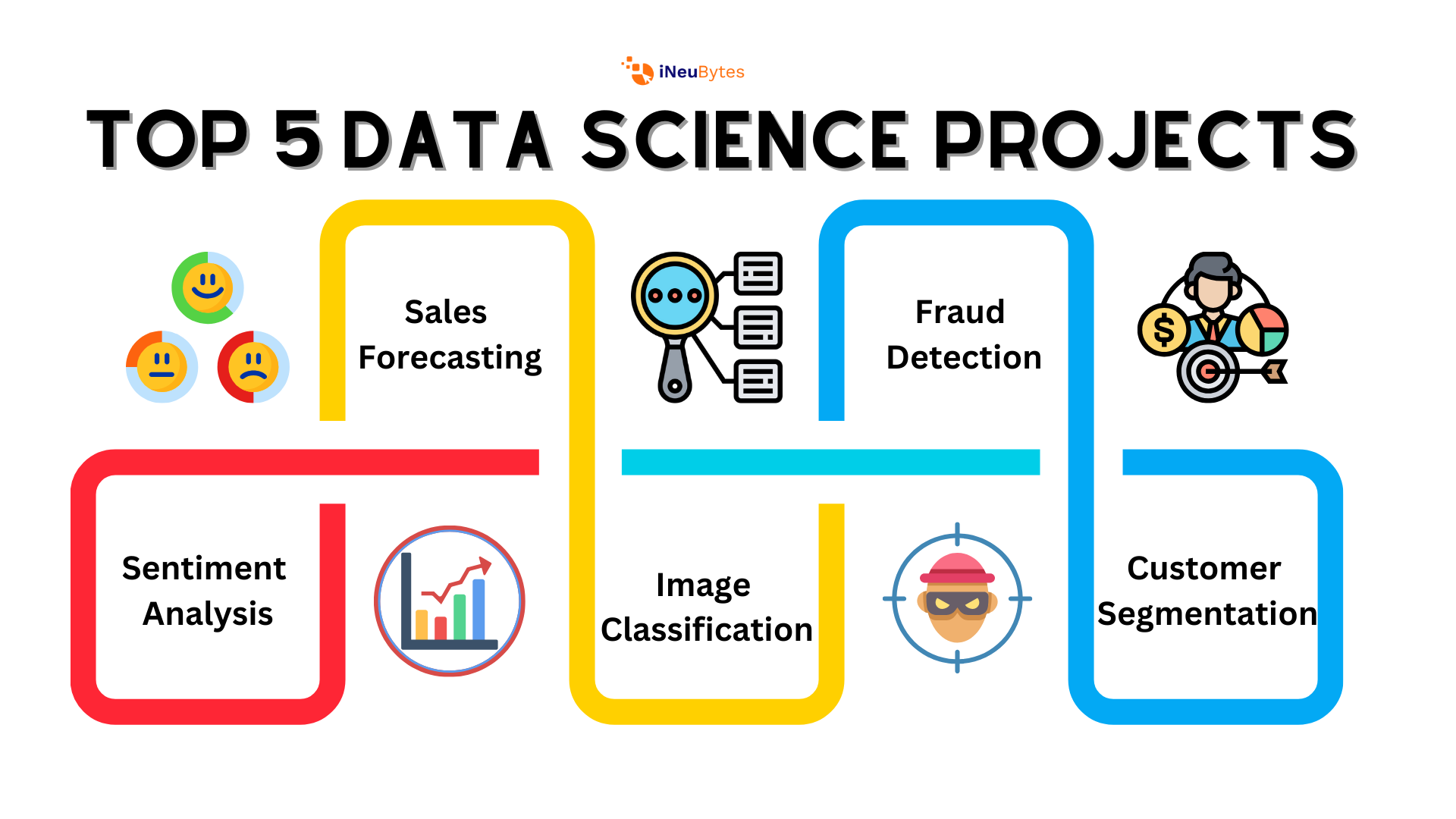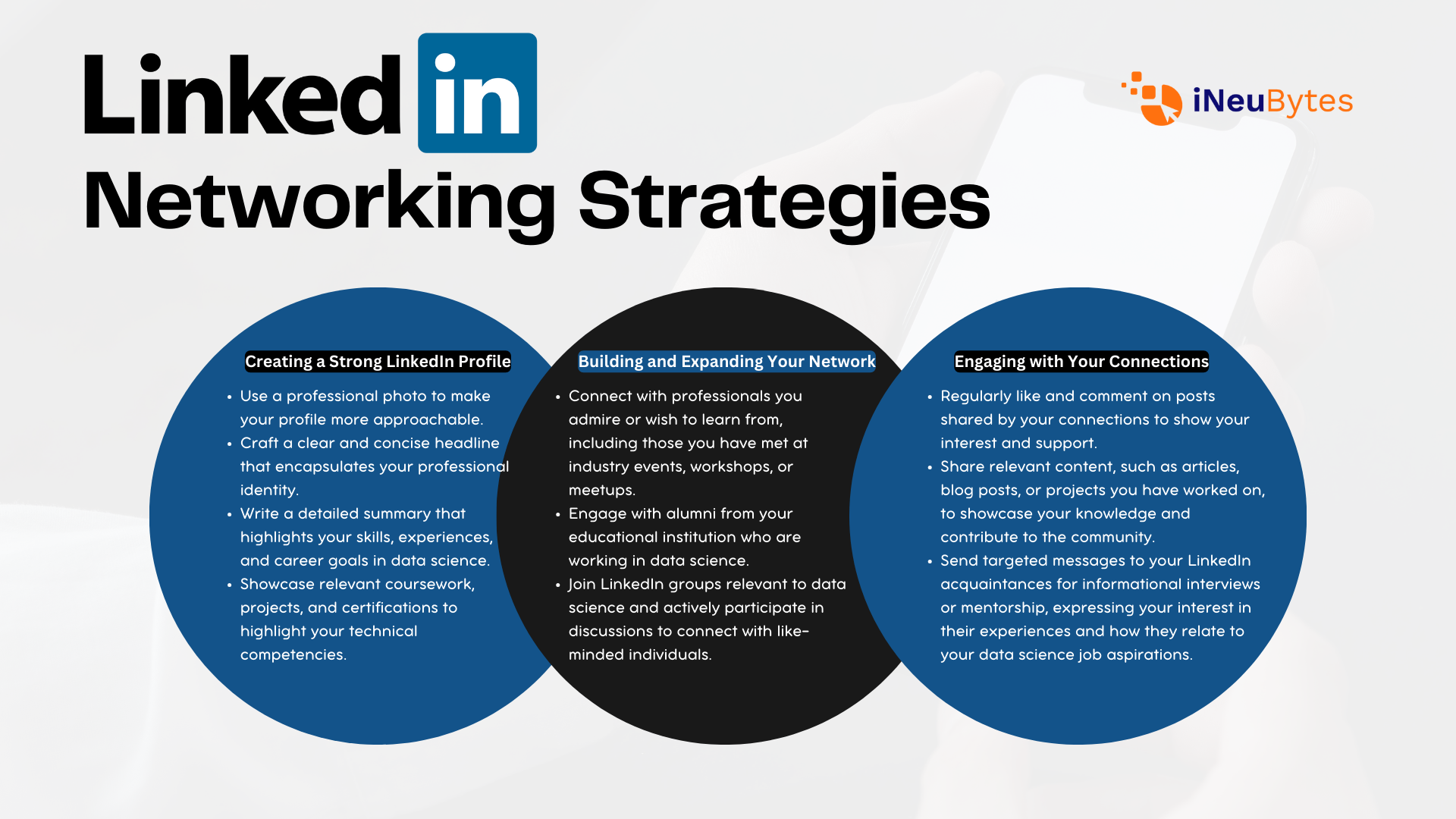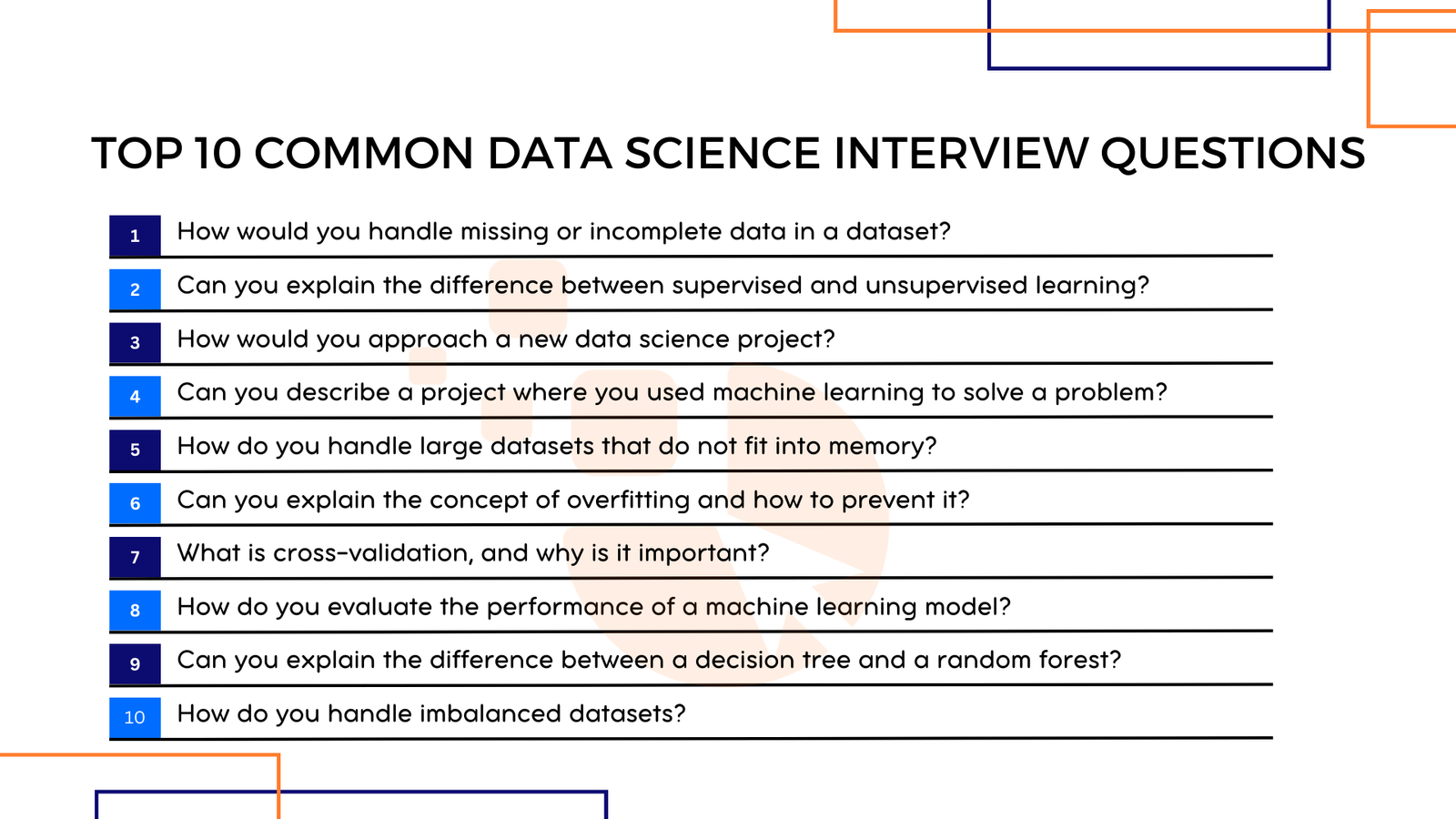
One of the fastest-growing fields in the modern economy is data science, and an internship can be a great way to get started on a successful job path in this area. People who want to become data scientists can get real experience, learn new skills, and build a professional network that can help them get jobs in the future by securing an internship.
The Importance of Internships in a Data Science Career
To secure a data science internship, start by building a strong educational foundation and focusing on key coursework and projects. Develop essential technical skills, such as programming in Python or R, statistical analysis, and machine learning. Enhance your real-world experience through personal projects, online courses, and certifications, showcasing your abilities in a portfolio. Leverage networking to connect with industry professionals and uncover internship opportunities. Utilize online job boards, company websites, and direct outreach to find openings. Finally, thoroughly prepare for interviews by researching the company, reviewing relevant experiences, and practicing common data science questions. Let's dive more into the content of the blog to understand every important section to secure data science internship:
1. Building a Strong Foundation
• A strong educational foundation and diverse skill set are crucial for a successful career in data science.
• A bachelor's or master's degree in a relevant field such as computer science, statistics, or mathematics is often required for data science internships.
• Specific data science course, including machine learning, statistical analysis, data mining, and programming, is essential.
• Engaging in real-world projects that apply theoretical concepts to practical scenarios enhances learning and showcases skills to potential employers.
• Proficiency in programming languages such as Python or R is crucial, as these are commonly used for data analysis and machine learning.
• A deep understanding of statistical analysis and machine learning is required to analyze data and develop predictive models.
• Data visualization skills are important for clear and concise communication of complex data insights, with tools such as Matplotlib and Seaborn commonly used in the field.
• Familiarity with big data technologies like Hadoop and Spark is becoming increasingly important as the amount of data generated continues to grow.
• These tools are essential for processing and analyzing large datasets.
• Investing time and effort into building a strong foundation will position aspiring data scientists for success in securing desirable internships and succeeding in the field.
2. Gaining Practical Experience
In the realm of data science, having practical experience is just as crucial as possessing a strong educational foundation. This practical knowledge can be amassed through engaging in personal projects, as well as partaking in online courses and obtaining relevant certifications.
Improve Personal Projects and Portfolio
Embarking on personal projects provides a golden opportunity to apply theoretical concepts acquired through coursework to tangible, real-world scenarios. These projects serve as an excellent medium to hone your skills and subsequently, exhibit them to prospective employers. The selection of projects is a pivotal aspect, and it is advised to opt for those that are pertinent to the field of data science. Such projects should aptly demonstrate your proficiency in collecting, analyzing, and interpreting data, in addition to showcasing your adeptness in utilizing the relevant tools and technologies. Equally important is the meticulous documentation of the project's workflow, starting from the problem definition, data acquisition, employed methodologies, and the results attained. This comprehensive documentation can be incorporated into your portfolio, thereby enhancing your professional profile. Some of the important data science projects to get hands on experience are:
 Figure shows the five Major Projects in Data Science.
Figure shows the five Major Projects in Data Science.
Sentiment Analysis: Analyzing social media data to determine the sentiment (positive, negative, or neutral) of posts or comments about a particular topic or brand. And the Tools and technologies you might use were Python, R, natural language processing libraries (such as NLTK or TextBlob), and data visualization tools.
Sales Forecasting: By using historical sales data to predict future sales for a particular product or business.And the Tools and technologies you might use were Python, R, machine learning libraries (such as scikit-learn or TensorFlow), and statistical analysis tools.
Image Classification: Developing a machine learning model to classify images into different categories (e.g., cats vs. dogs, or defective vs. non-defective products). And the Tools and technologies you might use were Python, R, deep learning libraries (such as TensorFlow or Keras), and image processing tools.
Fraud Detection: Developing a model to detect fraudulent activity, such as credit card transactions or insurance claims. And the Tools and technologies you might use were Python, R, machine learning libraries, and statistical analysis tools.
Customer Segmentation: Analyzing customer data to identify different segments or groups based on purchasing behavior, demographics, or other factors. And the Tools and technologies you might use were Python, R, clustering algorithms, and data visualization tools.
Online Learning Platforms
Online learning platforms have revolutionized the education landscape, offering convenient access to a plethora of courses and certifications across various domains, including data science. These platforms present a unique opportunity to learn from the best in the business, with courses curated and delivered by renowned universities and industry stalwarts.
Platforms such as iNeuBytes, Coursera, and edX have emerged as frontrunners in this domain. iNeuBytes is a platform that provides courses specifically designed for Data Science and Data Analytics. This course are designed and taught by industry professionals and academics with expertise in the field. The platform offers a wide spectrum of topics pertinent to data science, such as machine learning, statistics, and programming, from beginner to advanced levels, catering to learners with varying levels of experience of micro-assessment tasks, major project work experience and additionally, the real time virtual Industrial Experience will be provided to the learners.Some program offered by iNeuBytes are free, while others were paid courses. However, iNeuBytes often offers discounts and promotions to make learning more affordable.
Coursera, on the other hand, is celebrated for its extensive array of courses, specializations, and degrees, all of which are sourced from some of the world's most prestigious universities and institutions. With a mix of free and paid courses, along with the provision of financial aid, Coursera ensures that quality education is accessible to all. Similarly, edX stands tall as a leading online learning platform, offering courses and programs from some of the world's top universities and institutions. With a rich repository of courses, including those in machine learning, statistics, and data analysis, edX caters to the diverse needs of aspiring data scientists.These platforms provide a valuable opportunity for individuals to gain practical experience and develop the skills necessary for a career in data science. They also allow learners to study at their own pace and on their own schedule, making education more accessible and flexible.
3. Importance of Networking
Networking is a vital element in securing a data science internship, providing the opportunity to connect with industry professionals and gain valuable insights. Attend industry events and meetups to meet like-minded individuals and learn about the latest trends. Leverage platforms like LinkedIn to connect with professionals, ensuring your profile highlights your skills, experience, and relevant coursework. Engage with your connections by actively participating in discussions, liking, and commenting on posts, and seeking informational interviews or mentorship opportunities with personalized messages. These steps will not only help you build a strong professional network but also open doors to potential internship opportunities in the data science field.

Figure shows three important Networking Steps.
4. Searching for Internship Opportunities
Online Job Boards and Company Websites
Utilize well-established online job boards like Indeed, Glassdoor, and LinkedIn to find available data science internships. Utilize filters to hone in on opportunities that align with your specific preferences, such as location, industry, and the size of the company. Be sure to visit company websites directly to look for any internship opportunities they may have listed. These websites often provide detailed application instructions and requirements. It’s crucial that you meticulously follow these instructions and highlighting internship on resume and cover letter to match the specific internship you are applying for. Showcasing how your skills and experience make you a strong fit for the position can significantly enhance your chances of securing an interview.
Cold Emailing and Reaching Out to Companies
Cold emailing can serve as an invaluable tool when attempting to connect with companies that interest you. Craft a personalized and compelling email that clearly conveys your interest in the company and demonstrates how your skills and experience align with the internship opportunity they offer. Always include your resume as an attachment, and provide links to your portfolio and LinkedIn profile. This offers a comprehensive overview of your qualifications and makes it easy for the recipient to review your credentials. It’s also helpful to mention any relevant coursework or projects that highlight your suitability for the internship. A cold emailing sample looks like:

Figure shows the Cold Email for applying for an Internship.
Follow-Up to Companies
Following up is a crucial component of the application process. It reinforces your genuine interest in the internship and can make you stand out from other candidates. If you have not received a response within one to two weeks of sending your application or email, don’t hesitate to send a follow-up email. This email should be polite and concise, reiterating your interest in the internship and inquiring if there are any updates regarding the application process. Additionally, ask if any further information or documentation is required from your end. By following these steps, you will have maximized your chances of securing a data science internship that aligns with your career goals. A Follow up email looks like:

Figure shows the Follow-up Email for applying for an Internship.
5. Preparing for an Interview
Preparing for an interview is crucial to maximizing your chances of success in securing a data science internship.
Researching the Company
Start by diving deep into the company’s culture, mission, and values through its website, social media profiles, and other resources. This will give you insights into the organization and how you can demonstrate alignment with its values during the interview. Also, explore the company's data science projects, case studies, and press releases to understand the types of projects you might work on and to formulate insightful questions for the interview.
Preparing for Technical Questions
Data science interviews often include technical questions to assess your skills and knowledge. Revisit your coursework, projects, and relevant experiences to refresh your understanding of key concepts and techniques. Be ready to discuss how these experiences have prepared you for the internship. Practice answering common data science interview questions such as handling missing data in datasets, explaining the difference between supervised and unsupervised learning, and your approach to a new data science project. Some of the Questions are provided in the Figure below, just practicing these questions aloud or with a friend can be beneficial.

Figure shows ten common data science interview questions.
Preparing for Behavioral Questions
Behavioral questions are designed to assess your soft skills and cultural fit with the company. Prepare for common behavioral interview questions, such as describing a time you overcame a challenge, handled conflicting priorities, or worked in a team. Practice your responses with a friend or mentor, using the STAR method (Situation, Task, Action, Result) to structure your answers and provide specific examples from your experiences.

Figure shows ten common behavioral interview questions.
Thorough research, preparation for technical and behavioral questions, and practicing your responses will equip you with the confidence and knowledge needed to excel in your data science internship interview.
Conclusion
In conclusion, to effectively navigate the process of landing your first data science internship, focus on acquiring the right educational qualifications, gaining practical experience through personal projects and certifications, and building a strong professional network. Actively search for best internship course opportunities also with the same technique using online platforms, and don't hesitate to reach out to companies directly. When preparing for interviews, ensure you research the company thoroughly and practice responding to both technical and behavioral questions.
While the journey to secure a data science virtual internship can also be rigorous and competitive, remember that each step is a learning opportunity. Embrace the challenges and use any setbacks as a chance to refine your approach and improve your skills. With commitment and a proactive mindset, you'll be well-equipped to secure your first data science internship and make a significant leap towards a fulfilling career in the field. So, dive in, apply these tips, and secure your data science internship.